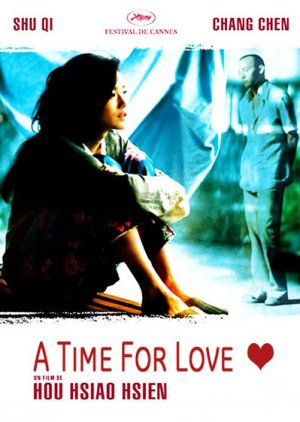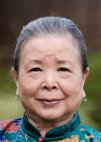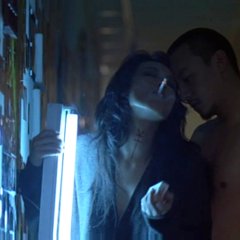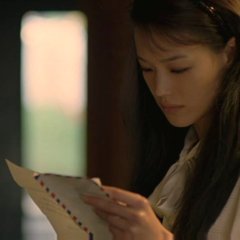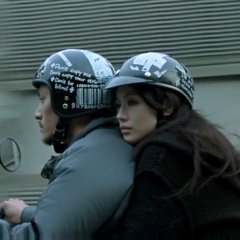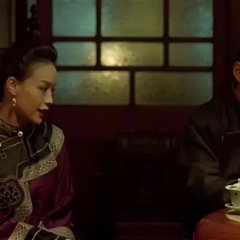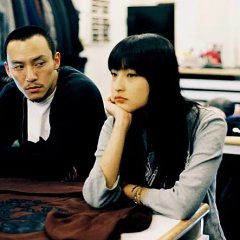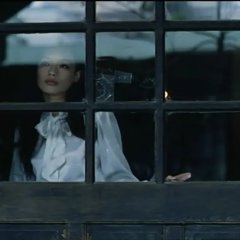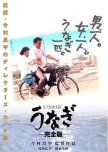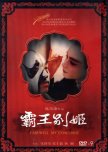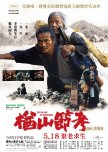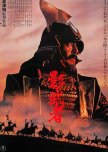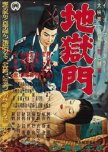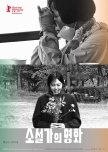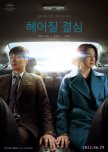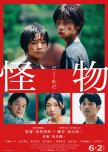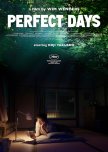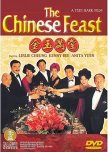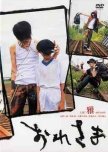 Ask MDL And Now For Something Different: Historical (September)
Ask MDL And Now For Something Different: Historical (September) Three love stories in three different eras (1966, 1911 and 2005) in Hou's characteristic, philosophical and aesthetic style. The different couples are each played convincingly by Shu Qi and Chang Chen. A blessing in disguise. The film was planned as a trilogy to be made by three directors. When the production could not be completed, the Taiwanese master decided to make all three parts himself. As a result, Hou forced himself to film three different stories in three different ways, so the viewer is treated to an unparalleled display of versatility. The three stories are situated in three different periods. And each time, Shu Qi and Chang Chen play the female and male leads in a tragic love story. The first part, A Time for Love, is closest to Hou's previous work and is set in the 1960s, in his youth. It is a very contained melodrama in which each detail falls into place. The last part, A Time for Youth, is set in today's Taipei. It shows the city as a hotspot, supported by the calming music of Lim Giong. This music and his mood will also be presented live by VJ Sunny Hu at the festival. The middle section, A Time for Freedom, is set furthest in the past and could be described as the tour de force of the three. It is set at the beginning of the 20th century, during the occupation of Taiwan by Japan. It has the style of a silent film from that period. Not entirely planned: the real reason was that the actors had trouble speaking classic Mandarin. Another blessing in disguise. (Source: Asianwiki) Edit Translation
- English
- magyar / magyar nyelv
- dansk
- Norsk
- Native Title: 最好的时光
- Also Known As: Zuìhǎo de shíguāng , Zui Hao De Shi Guang , Zuei Hao De Shih Guang
- Screenwriter & Director: Hou Hsiao Hsien
- Screenwriter: Chu Tien Wen
- Genres: Historical, Romance
Cast & Credits
- Shu Qi Main Role
- Chang Chen Main Role
- Wang Chih Cheng{A Time for Freedom} [Middleman]Support Role
- Lawrence Ko{A Time for Love}Support Role
- Mei Fang[Old woman]Support Role
Reviews

A Time for Love, is set in 1966. Shu Qi plays a young woman who works in a pool/snooker hall where she meets Chang Chen's character who is about to join the military. The Platters' Smoke Gets In Your Eyes plays in the background. The colors are warm and gauzy with a strong use of green. And these two are young, green and tentative as they give each other shy glances across the table. There is very little dialogue in this vignette, the tale told through actions, and body language. They write to each other after he leaves for the military and we see her smile as she reads his letter. Innocent and full of hope, this was easily my favorite story. "They asked me how I knew, My true love was true, I of course replied, Something here inside, cannot be denied." (Smoke Gets in Your Eyes)
A Time for Freedom is set in 1911 during the Japanese occupation of Taiwan. Shu Qi works in an upscale brothel and Chang Chen is her long time customer who comes and lives there when he is in town. Here the lighting is as subdued as the acting. The restraint is only broken when Shu Qi's character sings her sad songs. There are no spoken words in this vignette, though it is obvious much dialogue is being spoken, only a few words are shown on placards for the audience to read like in the old silent movies. I felt for Shu Qi's character, trapped in what amounted to indentured servitude with her only hope of someone making her his concubine. Chang Chen's character didn't approve of taking a concubine, but apparently staying at a brothel with girls as young as ten wasn't a problem with his ethics. Here again, there isn't much spoken conversation with some letters providing the rest. This story was sad and filled with longing as the couple and their world suffered. "Although this place has torn my heart, it is wrenching to leave it." (Liang)
A Time for Youth is set in 2005. The colors are harsh-cold grays and icy blues. Life is chaotic, fast, and real communication even with cell phones, email, and blogs is shown as being more difficult than in the past. Shu Qi plays a woman in a lesbian relationship having an affair with Chang Chen's character. He has a girlfriend who knows something is going on, just as Shu Qi's lover does. The two border on obsession as they meet in secret, creating tumult in their wake. "No past, no future, just a greedy present." (Jing)
The characters are molded by the times they live in, each one feeling authentic. Shu Qi gave brilliant performances. Her characters required a greater emotional breadth than Chang Chen's did and she absolutely nailed them. It's no wonder she won a Golden Horse for Best Actress for her work in this film.
This movie is not for everyone. It is slow and subtle, the endings not clearly written out, the characters not always likeable. If you don't mind the aforementioned you might be in for a quiet, gem of a movie.

